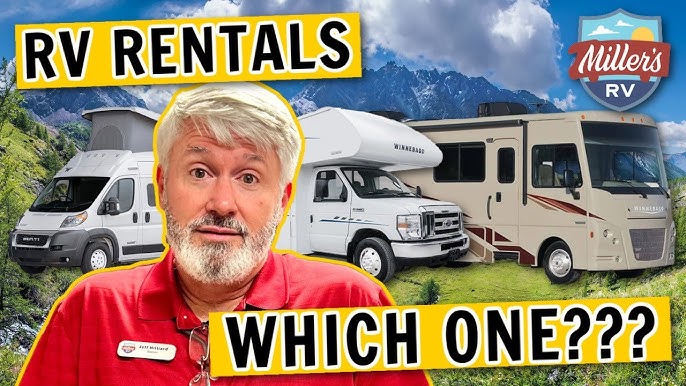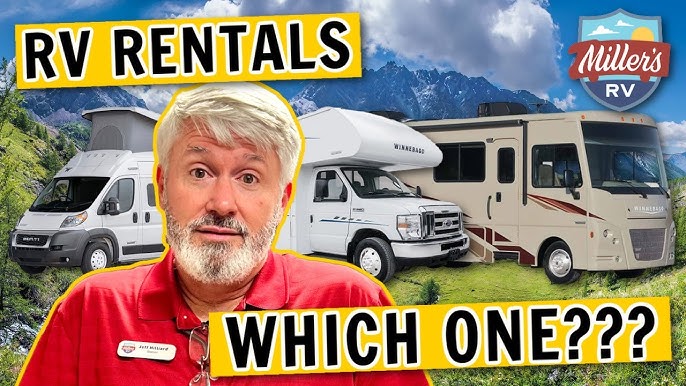
The Ultimate Guide to Finding the Best Motorhome Rentals Near You
Motorhome rentals are becoming an increasingly popular way to travel, combining the flexibility of road trips with the comfort of a home on wheels. Whether you’re planning a cross-country adventure or a weekend getaway, finding the best motorhome rentals near you can make all the difference in your travel experience. This ultimate guide will walk you through every step of the process, from identifying your needs to selecting the perfect rental, while providing tips on budgeting, legal considerations, and trip planning. By the end of this guide, you’ll have all the tools needed to secure the ideal motorhome for your journey.
1. Why Choose a Motorhome Rental?
Before diving into the search process, it’s essential to understand why motorhome rentals are such an attractive option for many travelers. Here are some key benefits:
- Flexibility: With a motorhome, you can create your own itinerary, stay at different locations as long as you wish, and adjust your plans on the go.
- Cost Efficiency: Motorhome rentals combine accommodation and transportation into one cost. Plus, you can save money by cooking your own meals and avoiding expensive hotel stays.
- Comfort: Unlike camping or staying in a small tent, motorhomes offer the comfort of a real bed, a bathroom, and sometimes even kitchen facilities.
- Connection with Nature: Travel in a motorhome gives you direct access to nature, whether you’re parking by a beach, near a national park, or in the mountains.
- Travel with Family or Pets: Motorhomes allow you to bring along family members, including pets, without the restrictions of conventional travel methods like flying.
Now that you see the value of renting a motorhome, let’s dive into how to find the best motorhome rentals near you.
2. Determining Your Motorhome Rental Needs
The first step in finding the best motorhome rental is understanding your specific needs. Motorhomes come in various sizes and styles, each catering to different types of travelers. Consider the following factors when deciding what type of motorhome you’ll need:
a. Size of the Motorhome
Motorhomes range from small campervans suitable for solo travelers or couples, to large Class A motorhomes that can accommodate families or groups of six or more. The size of the motorhome will affect not only your comfort but also your ability to drive and park in certain areas.
- Class A Motorhomes: These are the largest and most luxurious motorhomes, often featuring full-sized kitchens, bathrooms, and ample storage space. However, their size can make them more challenging to maneuver.
- Class B Motorhomes (Campervans): These are smaller and more compact, offering easier driving and parking. They are great for solo travelers, couples, or small groups.
- Class C Motorhomes: These motorhomes are a middle ground between Class A and Class B, offering more living space than a campervan but still easier to drive than a Class A.
b. Length of Your Trip
Consider how long you’ll be on the road. For shorter weekend trips, a compact campervan might be sufficient. However, for extended vacations or cross-country road trips, you’ll want a motorhome with more space and amenities.
c. Amenities
What amenities are essential for your trip? Some motorhomes come equipped with full kitchens, entertainment systems, and even laundry facilities, while others might offer just the basics. Be sure to list your priorities, such as:
- Bathroom with Shower: Some motorhomes have full bathrooms, while others may only offer a toilet or no bathroom at all.
- Kitchen: If you plan to cook meals, make sure the motorhome has a functional kitchen with a stove, fridge, and sink.
- Sleeping Arrangements: Look for the number of beds and whether they fit your group comfortably. Some motorhomes have fold-out beds or bunk beds.
d. Budget
Your budget will largely determine the type of motorhome you can rent. Larger and more luxurious motorhomes typically cost more per day, but there are plenty of budget-friendly options. Additionally, consider other costs like fuel, campsite fees, and insurance.
3. How to Find Motorhome Rentals Near You
Now that you have a clear idea of what type of motorhome you need, it’s time to start searching for rental options. Fortunately, finding a motorhome rental near you has never been easier thanks to online platforms and rental companies.
a. Online Platforms for Motorhome Rentals
Several websites and apps specialize in connecting travelers with motorhome rentals. Here are some of the most popular:
- Outdoorsy: Often referred to as the “Airbnb of motorhomes,” Outdoorsy allows individual owners to rent out their RVs and motorhomes. You can filter by location, size, and amenities, making it easy to find the perfect vehicle.
- RVshare: Similar to Outdoorsy, RVshare is a peer-to-peer rental platform that offers a wide variety of motorhomes. Many listings come with detailed reviews from previous renters, helping you make an informed decision.
- Cruise America: If you prefer renting from a company rather than individuals, Cruise America is one of the largest motorhome rental companies in North America. They have a fleet of well-maintained RVs and offer one-way rentals, which can be convenient for longer trips.
- Camplify: This platform is popular in countries like Australia and New Zealand, connecting travelers with motorhome owners for rentals.
- Local Rental Companies: Search for local RV rental companies in your area, which may offer more personalized service or unique vehicles not available on larger platforms.
b. Using Search Engines and Apps
To find rentals near you, simply use search engines with terms like “motorhome rentals near me” or “RV rentals [your location].” Google Maps can also help by showing nearby businesses that offer motorhome rentals.
In addition to rental platforms, some apps like Roadtrippers and Campendium can help you plan your route and find campgrounds, which may have onsite motorhome rentals.
4. Comparing Rental Options
Once you’ve found a few rental options, it’s time to compare them to ensure you’re getting the best deal and the right motorhome for your needs. Here’s what to consider when comparing rentals:
a. Rental Costs
Motorhome rentals typically charge a daily or weekly rate. However, there may be additional fees, including:
- Mileage Charges: Some rentals include a certain number of miles per day, while others charge extra for mileage beyond the limit.
- Generator Use: If your motorhome has a generator, there may be an additional fee for usage.
- Cleaning Fees: Some rentals charge a cleaning fee, especially if the motorhome is not returned in pristine condition.
- Security Deposit: Expect to pay a security deposit upfront, which will be refunded upon the safe return of the vehicle.
Be sure to read the rental agreement carefully to understand all potential costs.
b. Vehicle Condition and Age
Check the age of the motorhome and whether it’s been well-maintained. Older motorhomes may come at a lower rental cost, but they could be less reliable or lack modern amenities.
c. Reviews and Ratings
If you’re renting through a peer-to-peer platform like Outdoorsy or RVshare, read reviews from previous renters to gauge the quality of the vehicle and the responsiveness of the owner. Reviews can offer insight into whether the rental matches the description and how easy it is to work with the owner.
d. Pickup and Drop-Off Locations
Consider how far you’ll need to travel to pick up the motorhome. Some rental companies offer delivery or one-way rentals, where you can drop off the motorhome at a different location. This can be a convenient option for long-distance trips.
5. Understanding Motorhome Rental Insurance
Insurance is a critical aspect of motorhome rentals. Most rental companies or platforms provide basic insurance coverage, but it’s essential to understand what’s included and whether you need additional coverage.
a. Rental Insurance Coverage
Basic rental insurance typically covers damage to the vehicle itself, but it may not cover personal belongings, accidents, or third-party liability. Always ask for a detailed breakdown of what’s included in the rental insurance policy.
b. Additional Insurance Options
Depending on the rental company, you may have the option to purchase supplemental insurance to cover higher liability limits or personal property. Some credit card companies also offer rental vehicle insurance, so check with your provider.
6. Tips for a Smooth Motorhome Rental Experience
To make your motorhome rental experience as smooth and enjoyable as possible, follow these tips:
a. Book Early
Motorhome rentals, especially in peak travel seasons, can get booked quickly. Try to reserve your rental several months in advance to secure the best options.
b. Inspect the Vehicle
Before driving off with your rental, do a thorough inspection of the motorhome. Check for any existing damage and ensure that all systems (such as the plumbing, electrical, and air conditioning) are working properly.
c. Practice Driving
If you’re new to driving a motorhome, take some time to practice before hitting the road. Motorhomes handle differently than cars, and you’ll need to get used to the size, turning radius, and braking.
d. Plan Your Campsites in Advance
Not all campsites can accommodate motorhomes, so it’s important to plan your route and book campsites that are RV-friendly. Apps like Campendium and The Dyrt can help you find suitable campsites.
e. Pack Efficiently
While motorhomes provide more storage than a typical vehicle, space is still limited. Pack only the essentials and make sure everything is securely stored to avoid items shifting during travel.
